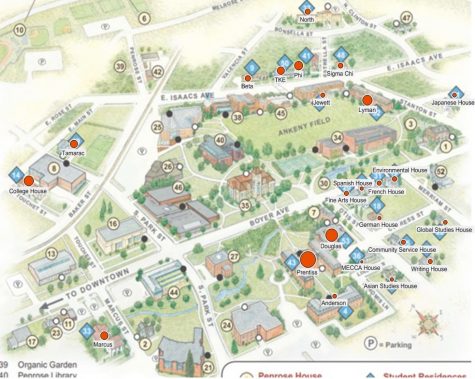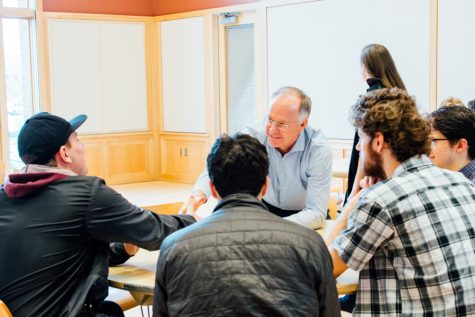The Other Side of Myra Road
April 20, 2017
Myra Road separates Walla Walla from the city of College Place; it also separates Whitman College from Walla Walla University. The two institutions exist in parallel universes with little crossover.
I had the chance to visit Walla Walla University last Wednesday, April 12. I drank Ginger Chai Tea with the Assistant Editor of “The Collegian,” Abby Wissnick, at the Atlas Cafe. We chatted about religion, party culture and politics.
Life on the two campuses has been especially divergent since November 8. The election of President Donald J. Trump was a polarizing issue on Ankeny and at Sittner, but for different reasons.
Whitman students have–for the most part–reacted with dismay. Protests have been commonplace, both after the initial election results and then regaining momentum in the wake of Trump’s inauguration. “The Collegian” staff didn’t believe me when I told them that a flag had burned in anger on campus.
This has not been the case at WWU.
“It’s a lot less public, I think,” Abby said, referring to protests since the election. “The administration, or people who back the school, they might feel differently than my friends and I. There aren’t really a whole lot of public protests anywhere. It’s usually more of an individual event.”
This difference reflects an ideological divide between the two schools. Whitman is predominantly liberal. I don’t want to paint with too broad a brush, but most of campus seems to have been grieving since January 20.
Wissnick explained to me that is has been more complicated on the other side of Myra, both for the campus as a whole and for her specifically.
“That was my birthday, so I might have had a separate experience.” Abby turned 23 the night Donald Trump was elected President of the United States.
“The night was mostly spent eating the least celebratory birthday cake ever on the floor of my room while listening to NPR,” Abby continued.
But the next day, there was no mass student action. Walla Walla University is by no means overwhelmingly conservative, but it is more of a mix. “You can walk into a classroom and have no idea about someone’s political views,” Abby said.
The political homogeneity of Whitman’s student body is discussed ad nauseam. People speak in hushed tones about the infamous “Whitman bubble,” they bemoan the lack of ideological diversity in classrooms and in conversations.
For Abby, this is not unique to the Blues. “Even here it’s easy to stay in your bubble, people tend to flock to their own belief system and political beliefs … I think it can be tiring to hang out with people that have very different political beliefs than you.”
I grew up a devout agnostic. I have been to church once in my life, I was 18 and I went on what can only be described as a lark. It was fine, but it didn’t really do anything for me. I can count the number of Republicans that I know on my fingers.
And yet, I found a lot more in common with the students at Walla Walla University than you might think. Hanging out in the Newsroom, arguing over layout, gorging myself on Animal Crackers, it felt like The Wire. In this age of division, at a time when the country, and even the 509, seems more separated than ever before, maybe we can take solace in the fact that the split on Myra road isn’t as big as we might imagine.








